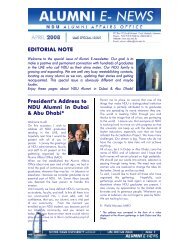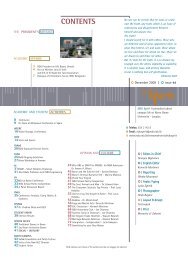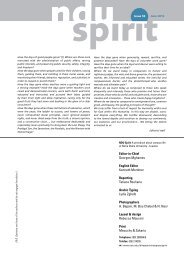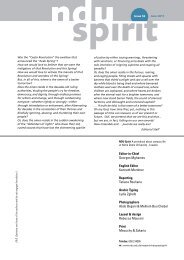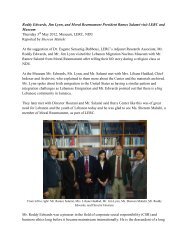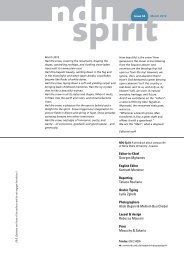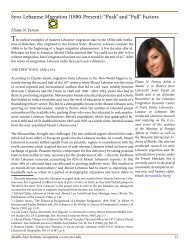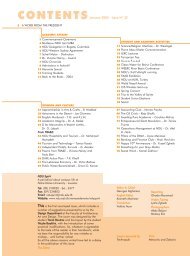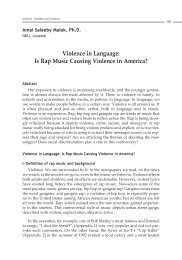OUTLINE - Notre Dame University
OUTLINE - Notre Dame University
OUTLINE - Notre Dame University
You also want an ePaper? Increase the reach of your titles
YUMPU automatically turns print PDFs into web optimized ePapers that Google loves.
C O M M U<br />
This was the rather surprising title of Erik<br />
Peterson’s article in the review Communio that was<br />
discussed when the Communio Circle met on<br />
Thursday, 19th December, 2002. The presentation was<br />
made by Mr. Riad Mufarraj with remarkable insight<br />
into Patristic theology.<br />
Erik Peterson (1890-1960) is now realised as having<br />
been an unfairly neglected Christian thinker,<br />
although his retiring nature may be considered as<br />
largely to blame. He was brought up by an agnostic<br />
father and a severely Calvinist mother. From 1910<br />
onwards he followed theology courses in a number<br />
of German universities and qualified as a lecturer in<br />
1920, after specialising in classical and Christian epigraphy.<br />
After contact with such leading Protestant<br />
theologians as Harnack, Karl Barth and Rudolph<br />
Bultmann, he finally moved away from both liberal<br />
and dialectical theology towards Catholic notions of<br />
revelation, faith and Church. Despite attempts by<br />
such eminent friends as Jacques Maritain to help him,<br />
Theology of Dress<br />
A welcome to<br />
Communio<br />
from Dr. Edward Alam.<br />
he refused academic positions in the Catholic world,<br />
except one at the Pontifical Institute of Christian<br />
Archaeology, and lived a lonely and penurious life. A<br />
number of his theological and historical essays were<br />
published before he died in his birthplace, Hamburg,<br />
leaving a wife and five children.<br />
In the essay now published in English in Communio,<br />
he insisted that man’s dress was not, as is popularly<br />
supposed, a moral problem at all, but rather a metaphysical<br />
and theological one. He noted that those<br />
who advocated a cult of nudity did so out of conscious<br />
opposition to the Church on an ideological<br />
basis. This, incidentally, was confirmed by Dr.<br />
Eugene Sensenig-Dabbous (NDU) out of his own<br />
experience in German-speaking Europe. The author<br />
pointed out that the biblical account in Genesis refers<br />
to nakedness only after the Fall. The previous lack of<br />
clothing was not nakedness; nakedness supposes<br />
lack of clothing but is not identical with it (it should<br />
hardly be necessary to point out that the popular<br />
belief that Adam’s sin was a sexual one is utterly erro-<br />
12 NNU SPIRIT



